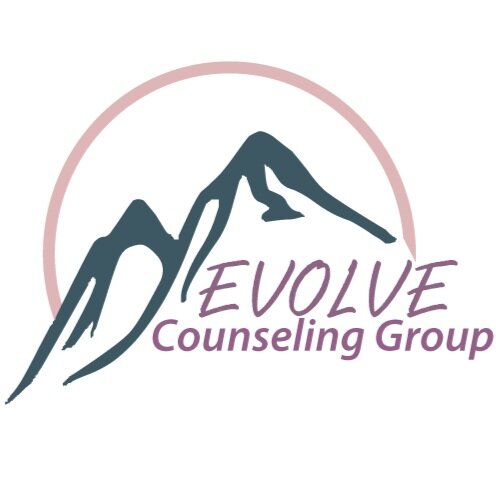July Newsletter
This month, we're focusing on two important and timely topics to support your mental wellness journey. We delve into the complexities of teen social media use, offering insights and guidance for navigating the digital world. Additionally, we're providing more information on Ketamine Assisted Psychotherapy (KAP), exploring this innovative approach to mental health treatment.
We hope you find these resources helpful and informative. Please continue reading below to access the full articles and learn more.
Scroll Smarter, Live Better: Your Guide to Responsible Social Media
Social media platforms have become a part of our daily routines. Research is still mixed, so the conversation has shifted toward how we use these platforms responsibly. These platforms create global communities where people swap experiences and support one another. If you have teens in your life who use social media, the goal shouldn’t be to bash social sites; that only widens the gap between adults and students. Instead, we can embrace social media as a tool while teaching healthy habits and encouraging open communication
Positive Mental Health Effects of Social Media
Studies have shown that engagement in social media can positively affect mental health by fostering social camaraderie among peers, providing easy access to information, offering support that individuals may not receive in their daily physical lives, and creating online connections when face-to-face interaction is not possible (Reilly, M., Dogra, N., Hughes, J., Reilly, P., George, R., & Whiteman, N. 2019).
That said, we also need to be aware of any potential negative outcomes associated with social media use.
Potential Adverse Mental Health Effects of Social Media
Potential negative effects of social media use may include loneliness, FOMO (fear of missing out), social comparison anxiety, poor body image, and depression. These negative effects can occur when someone scrolling through social media sees what others are posting and feels left out due to their proximity to the situation.
Why does this matter?
These negative feelings can be exacerbated by pre-existing mental health issues such as anxiety or depression. If a person feels lonely and scrolls through social media, seeing photos of others having a great time with their friends and family, it can lead them to feel bad about their own situation (Fardouly et al., 2018). The tendency to observe others is a form of self-evaluation and is a normal part of development; however, in excess, it can contribute to depression. This phenomenon is known as social comparison. Social comparison can significantly affect a person’s self-esteem as they measure themselves against those around them (Hwang, 2019). Social
media and social comparison have become closely linked, as social media provides people of all ages with instant access to view the lives of others.
Ways to Encourage Healthy Social Media Use
Social media use doesn’t need to be eliminated altogether; however, promoting healthy usage can enable individuals to benefit from its positive aspects while shielding themselves from potential downsides. Research has demonstrated that active involvement with in-person relationships counteracts the negative effects of social media. Additionally, in-person connections help reduce the tendency to overindulge in social media. Perceived social support is a vital component for the mental health of someone using social media because individuals who feel supported in their physical lives are less likely to depend on support received online.
Here are six therapist-approved ways to scroll responsibly:
1. Keep open communication with the people in your life, both in person and online.
2. Be cautious not to overshare or disclose any personally identifiable information when posting photos, such as school logos, street names, or addresses.
3. Always encourage teens to avoid meeting strangers and refrain from engaging in secret conversations or sharing photos.
4. Remember to have ongoing discussions with the teens in your life about how people can present themselves differently from who they are on social media and create a list of guidelines to help them stay safe.
5. Take breaks when you need them.
6. Keep routines in your physical environment. (Maintain off-screen routines: exercise, hobbies, and face-to-face time.)
In Conclusion
If you notice that social media use has been intensifying your anxiety, depression, self-esteem, or body-image issues, please reach out to a mental health professional for support in examining your social media habits and working to reduce your screen time so that you can be more present in your physical life.
Written by: Dr. Jamie Bailey DSocSci, LCPC, LPCMH, NCC
Director of Clinical Services at Evolve Counseling Group
Explore Deeper Healing with Ketamine-Assisted Psychotherapy (KAP)
Danielle Norkin, LGPC, offers in-person Ketamine-Assisted Psychotherapy (KAP) at her cozy office in Downtown Frederick, MD. As a licensed therapist with nearly two years of KAP experience, Danielle completed an intensive 10-month Psychedelic Facilitator Certification through the SoundMind Institute.
KAP combines the legal, prescribed use of ketamine with guided psychotherapy to promote personal insight, emotional release, and expanded self-awareness. This breakthrough modality has shown powerful results, particularly for individuals struggling with PTSD, treatment-resistant depression, and severe anxiety.
Danielle provides compassionate, ongoing support throughout the entire process—including a preparatory session, integration therapy, and breathwork practices. With a strong emphasis on safety and trust, Danielle creates a grounded space for deep inner work and is dedicated to each client’s healing process.
Through this treatment, the intention is to create deep and lasting change by uncovering and transforming the thought patterns, emotional loops, and negative habits that may be keeping you stuck.
Clients can choose from three different packages tailored to their pace and therapeutic goals. Interested in learning more? Schedule a free video consultation to see if KAP is right for you.
